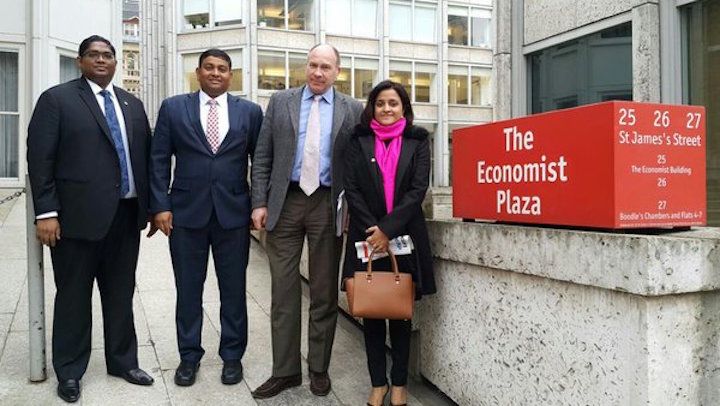The Economist accused of defaming Maldives government
The government has reacted furiously to The Economist’s coverage of the new opposition coalition launched in London last week, accusing the magazine of being manipulated “to further an agenda that has, as its central aim, the unconstitutional removing of a democratically elected president”.

09 Jun 2016, 09:00
The government has reacted furiously to The Economist’s coverage of the new opposition coalition launched in London last week, accusing the UK-based newspaper of “strategically misrepresent[ing] facts on Maldives.”
An article published on Tuesday described President Abdulla Yameen as “increasingly repressive” and suggested that free and fair elections in 2018 “seems an increasingly distant prospect” after political rivals were jailed on “laughable terrorism charges”.
In a strongly worded statement released yesterday, the foreign ministry said the article “would not qualify to be published even in the tabloid media” and accused the paper of furthering the opposition’s agenda of illegally overthrowing the government.
The Economist is “yet another media outlet that has allowed itself to be manipulated, that no longer considers investigation appropriate insofar as journalism is concerned, and is instead content to publish scurrilous rumour and conjecture masquerading as fact,” the foreign ministry said.
Become a member
Get full access to our archive and personalise your experience.
Already a member?
Discussion
No comments yet. Be the first to share your thoughts!
No comments yet. Be the first to join the conversation!
Join the Conversation
Sign in to share your thoughts under an alias and take part in the discussion. Independent journalism thrives on open, respectful debate — your voice matters.




